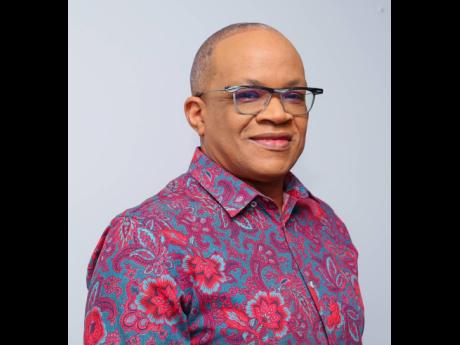Michael Abrahams | Happiness – beyond a smiling face
A few weeks ago, a woman visited my office for assistance in dealing with a chaotic menstrual cycle. It was her first consultation with me, and during such a visit it is appropriate to enquire about a person’s family history. At that point in the interview, when I asked her if there were any hypertensive family members, she responded by telling me that she grew up in a children’s home and knew little about her biological family. I made a mental note of that comment and continued with the interview.
At the end, I revisited her remark and told her I was sorry that she grew up under those circumstances. We engaged in a conversation about her childhood which, not surprisingly, was abusive and traumatic. Then, she threw a question at me that was sincere, but unexpected. She looked at me, with tears in her eyes, and asked, “Doctor, how can someone be happy?”
I was caught off guard. The question was a direct one, from someone in distress, who had heard about happiness but never truly experienced it. I am no happiness expert, but her question forced me to mentally gather all the information I could recall about that state of mind and share it with her.
I informed her that, in my opinion, if one wants to be truly happy, one ought to make a decision, a commitment to be happy. Happiness does not come easily to all of us, but it is something that we all have the ability to find.
I told her that one of the most important things is to own your issues and deal with them. Her childhood was horrific, and she was suffering from depression. She had never seen a mental health professional, so I advised her to do so and gave her a contact number for one. I expressed my opinion that we all could use some therapy and she should not be ashamed to admit that she needs help or to seek it.
GRATITUDE IS IMPORTANT
The expression of gratitude is also important for happiness and peace of mind. No life is perfect. There will often be voids in our lives and the absence of things we need, but if we take time to express gratitude for the things we have, it will contribute greatly to our mental well-being. Keeping a gratitude journal and writing in it regularly is very useful in this regard, and I encouraged her to obtain and keep one.
I used the concept of energy conversion to explain one of the ways gratitude helps me. For example, I have depression, but I am grateful that I do, because it helps me to empathise with my patients who have it as well. Looking into someone’s eyes and telling them that you comprehend their condition because you have it too, has far greater impact than telling them you understand because you have read about it. Energy can neither be created nor destroyed, but it can be converted from one type to another. So, I convert the negative, sad energy of depression to the positive energy of using my experience to empathise with and comfort those who also have the condition.
Giving to others is another way to achieve happiness, and I encouraged her to do this. This shifts the focus away from you. Performing random acts of kindness is one way to do this. Joining a service organisation or a charity is another. It is also important to be mindful of the company you keep and the people whose spaces you enter, or you let into yours. Negative and angry people can drain your energy and add to your mental and emotional distress and are best avoided. Unfortunately, sometimes there are people like this you simply cannot avoid because you live or work with them. I told her that if you are unable to change your situation, you can work on changing your attitude towards the situation. I am not a person of faith, but I find the words of The Serenity Prayer, written by the American theologian Reinhold Niebuhr, to be powerful and practical, and I shared them with her: “God, grant me the serenity to accept the things I cannot change, courage to change the things I can, and wisdom to know the difference.”
I also encouraged her to exercise and to eat healthily, as having a healthy lifestyle is an important contributing factor to being happy.
During our conversation, she listened keenly to what I had to say, and I realised that her desire for happiness greatly superseded her need to have her gynaecological issue fixed, a situation that is not uncommon in my office. At the end of the visit, as she stood and prepared to leave, I told her I had something for her. I approached her and gave her a firm and comforting hug, and she expressed her appreciation, telling me that she really needed it.
There is much sadness and loneliness around us. Each day we interact with people who are on the edge and we do not even realise it. We should all strive to be happy, and while doing so, try to contribute to the happiness of others.
Michael Abrahams is an obstetrician and gynaecologist, social commentator and human rights advocate. Email feedback to columns@gleanerjm.com and michabe_1999@hotmail.com, or tweet @mikeyabrahams.

